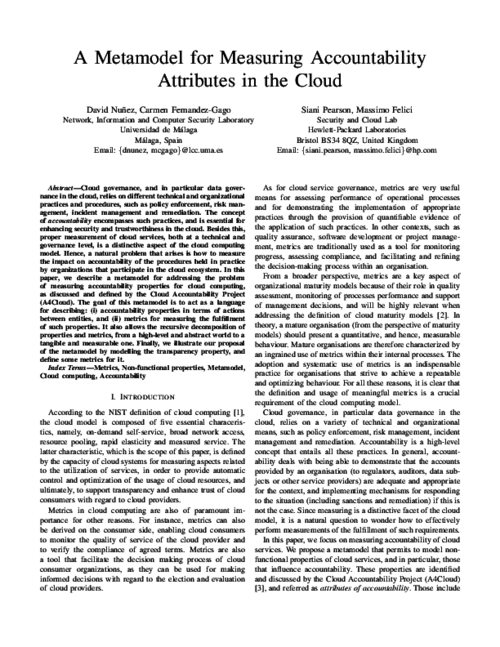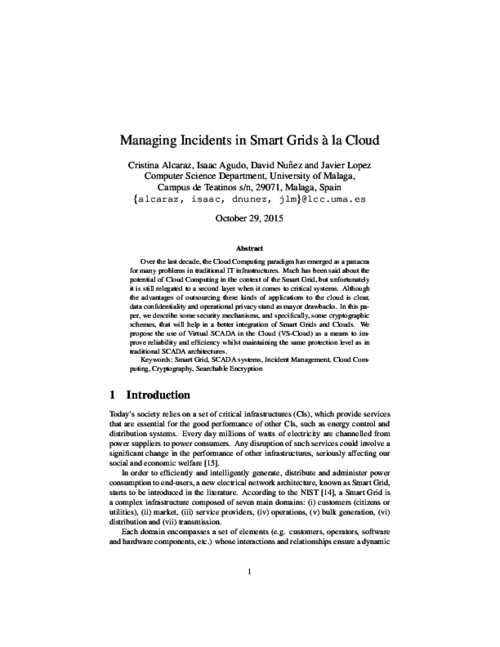 ] Type Year
] Type Year Accountability and Security in the Cloud, vol. 8937, no. LNCS Tutorial, pp. 129-153, 2015.
2013 IEEE International Conference on Cloud Computing Technology and Science (CloudCom 2013), IEEE, pp. 355-362, 12/2013. DOI
Abstract
Cloud governance, and in particular data governance in the cloud, relies on different technical and organizational practices and procedures, such as policy enforcement, risk management, incident management and remediation. The concept of accountability encompasses such practices, and is essential for enhancing security and trustworthiness in the cloud. Besides this, proper measurement of cloud services, both at a technical and governance level, is a distinctive aspect of the cloud computing model. Hence, a natural problem that arises is how to measure the impact on accountability of the procedures held in practice by organizations that participate in the cloud ecosystem. In this paper, we describe a metamodel for addressing the problem of measuring accountability properties for cloud computing, as discussed and defined by the Cloud Accountability Project (A4Cloud). The goal of this metamodel is to act as a language for describing: (i) accountability properties in terms of actions between entities, and (ii) metrics for measuring the fulfillment of such properties. It also allows the recursive decomposition of properties and metrics, from a high-level and abstract world to a tangible and measurable one. Finally, we illustrate our proposal of the metamodel by modelling the transparency property, and define some metrics for it.

IEEE CloudCom 2011, IEEE Computer Society, pp. 527-531, Nov-Dec 2011. DOI
Abstract
During the last decade, the Cloud Computing paradigm has emerged as a panacea for many problems in traditional IT infrastructures. Much has been said about the potential of Cloud Computing in the Smart Grid context, but unfortunately it is still relegated to a second layer when it comes to critical systems. Although the advantages of outsourcing those kind of applications to the cloud is clear, data confidentiality and operational privacy stand as mayor drawbacks. In this paper, we try to give some hints on which security mechanisms and more specific, which cryptographic schemes, will help a better integration of Smart Grids and Clouds. We propose the use of Virtual SCADA in the Cloud (VS-Cloud) as a mean to improve reliability and efficiency whilst maintaining the same protection level as in traditional SCADA architectures.
